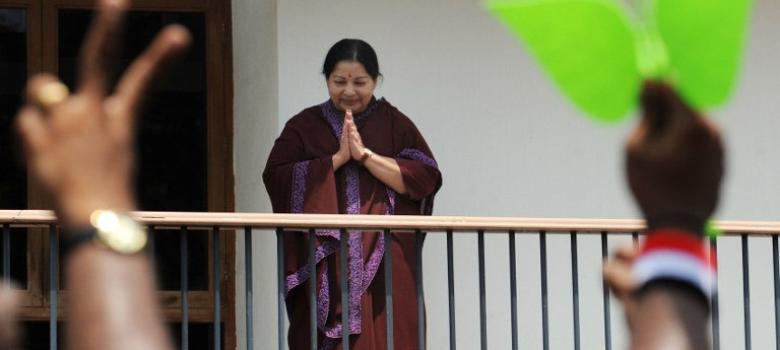That question remains unanswered as the two judges hearing the case held differing views. The hearing in the case, in which Jayalalithaa has been convicted of having illegal assets valued at Rs 58 crores, will now be heard by a three-member bench.
Justice Bhanumathi felt that there was no need to remove Singh as Special Public Prosecutor and that the appeal process could continue with him.
Split verdict
But the lead judge, Justice Madan B Lokur, said that Singh needed to be removed. In a strongly-worded judgment, Justice Lokur said that Singh’s continuation in the appeal process was a “sign of the failure of the criminal justice delivery system” and added that the entire appeal stands vitiated. He observed that it indicated how powerful people could manipulate the justice system.
The case, which was filed in a court in Chennai in 1996, was transferred to Bangalore in the neighbouring Karnataka after fears were expressed that a trial in the chief minister’s home state would not be fair.
Bhavani Singh’s tenure as Special Public Prosecutor, which began in 2013 after the previous lawyer resigned, has been riddled with controversy. To begin with, his appointment caused a flutter as his name was not on the list of four names selected by the Karnataka government and submitted to the Karnataka Chief Justice.
In August 2013, Anbazhagan, general secretary of the Dravida Munnetra Kazhagam, the main opposition party in Tamil Nadu, moved the Supreme Court against Singh’s appointment. In an unusual development, the defendants argued that Singh should be allowed to stay. The apex court, while allowing Singh to continue, observed in its order that Singh’s appointment was indeed “unusual”.
Charges that Singh has been aiding Jayalalithaa have plagued him throughout the case. The DMK’s petition describes how Singh allowed the investigation officer-in-charge, Sambandam, to appear as a defence witness, despite being the key investigator of the prosecution’s case. Worse, Singh did not cross-examine Sambandam during the trial.
In February 2013, Singh tried to call Jayalalithaa’s secretary V Bhaskaran as a witness, even though it was common knowledge that he had died two months before. The vexed trial court judge lambasted him in a written order.
Failing to appear
In March 2014, Singh invoked the ire of trial court judge Justice Cunha, when he did not turn up at court to present final arguments. His excuse was that he was in ill health. After a month and a half of this, Justice Cunha imposed a fine of Rs 65,000 per day on him for each day that he failed to appear in court. Singh appealed against this in the Karnataka High Court. The High Court upheld Cunha’s order.
Singh’s final flip- flop came during Jaya’s bail hearing at the Karnataka High Court. In September 2014, Singh had given written submissions vehemently opposing bail for the politicians. Barely a week later, Singh orally submitted that the prosecution would not object to conditional bail for her. The court did not failed to notice this change of position and bail was denied.
The case will now be scrutinised by a higher bench. If Singh continues in his role, Justice Lokur said on Wednesday, “the justice delivery system is the ultimate loser”.










